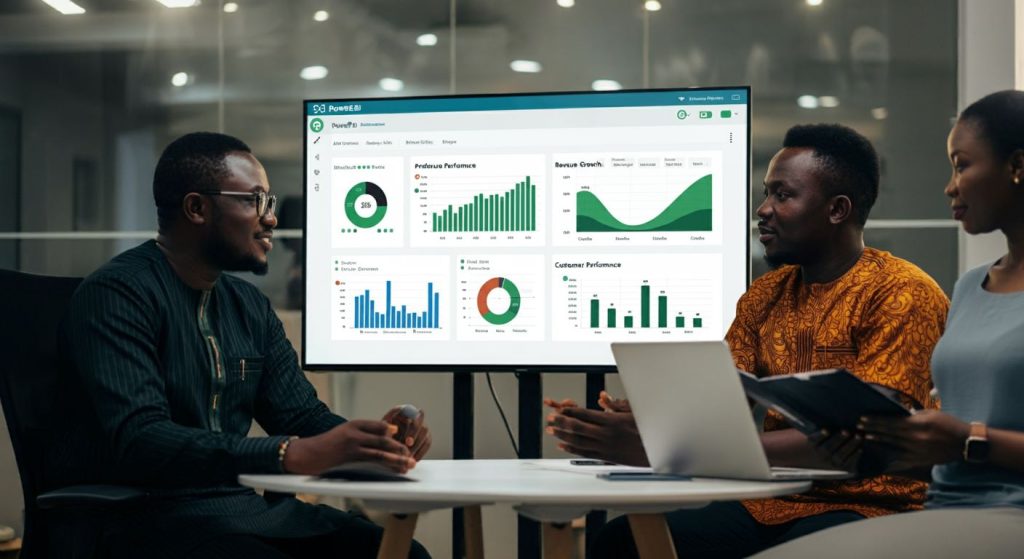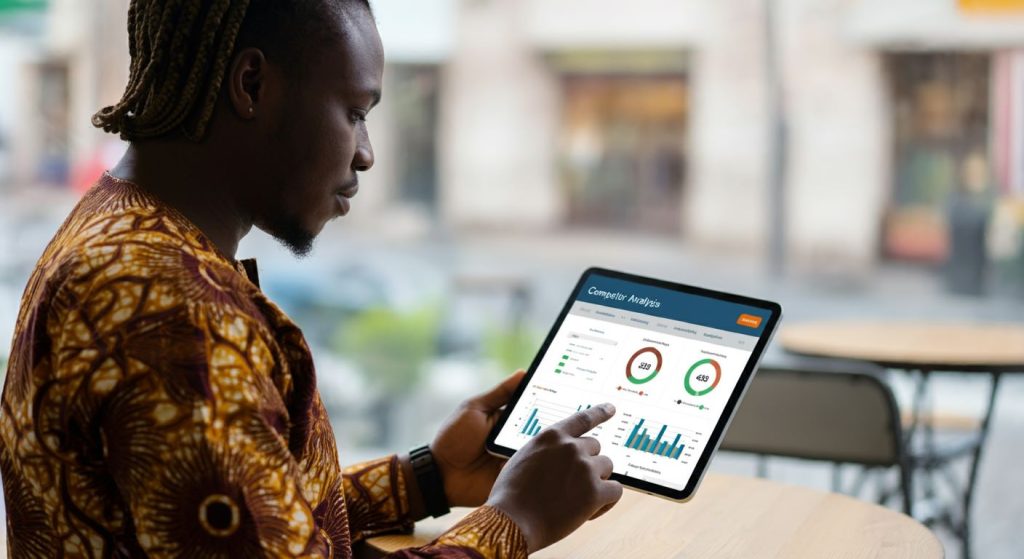In today’s data-driven world, businesses must harness the power of analytics to remain competitive, especially in Nigeria, where the market dynamics are unique. Analytics allows businesses to uncover valuable insights, optimize operations, and make informed decisions that propel growth. This article explores actionable ways Nigerian businesses can use analytics to achieve sustainable growth, with examples tailored to the local context.

Table of contents
1. Understanding Customer Behavior Through Data Analysis

Analytics helps businesses gain a deep understanding of their customers’ behavior, preferences, and purchasing patterns. By leveraging tools like Google Analytics, Nigerian businesses can track website visits, monitor popular pages, and analyze customer journeys. Social media analytics also plays a significant role in understanding audience engagement and demographics.
For instance, a retail business in Lagos can identify peak shopping hours and popular product categories. This data allows the company to optimize staffing, stock inventory strategically, and personalize marketing campaigns.
2. Enhancing Marketing Strategies With Predictive Analytics

Predictive analytics uses historical data to forecast future trends. Nigerian businesses can use this to anticipate customer needs, optimize ad spend, and improve campaign targeting. For example, an Abuja-based e-commerce platform can analyze past sales data to predict high-demand periods and tailor discounts or promotions accordingly.
Additionally, businesses can use analytics tools like HubSpot or Tableau to monitor campaign performance in real time. This ensures resources are allocated efficiently, leading to higher ROI. Predictive analytics can also inform email marketing by suggesting the best time to send messages or the type of content likely to resonate with recipients.
3. Optimizing Supply Chain and Inventory Management

Efficient supply chain management is crucial for Nigerian businesses dealing with logistical challenges, such as unpredictable delivery times or fluctuating product demand. Analytics can optimize the entire supply chain by forecasting demand, managing inventory levels, and identifying bottlenecks.
For example, a manufacturing company in Kano can use analytics to predict raw material shortages and ensure timely replenishment. Similarly, retailers can track sales patterns to reduce overstocking or understocking, which saves costs and enhances customer satisfaction.
4. Driving Employee Performance Through Workforce Analytics

Workforce analytics focuses on improving employee productivity and satisfaction. By analyzing performance metrics, Nigerian businesses can identify training needs, optimize work schedules, and enhance team efficiency. Tools like BambooHR or Zoho People provide actionable insights into employee attendance, turnover rates, and productivity trends.
For example, a tech startup in Lagos can analyze which teams consistently meet their targets and replicate their strategies across other departments. Additionally, sentiment analysis from employee surveys can help improve workplace morale and reduce attrition.
5. Boosting Sales Through Advanced Analytics

Sales analytics enables Nigerian businesses to track revenue trends, identify best-performing products, and analyze customer acquisition costs. By integrating tools like Salesforce or Microsoft Power BI, businesses can make data-driven sales decisions.
For example, a hospitality business in Abuja could use analytics to identify the most profitable service offerings, track booking trends, and adjust pricing dynamically during peak seasons. This level of insight drives revenue growth and customer retention.
6. Improving Financial Decision-Making With Business Intelligence

Financial analytics helps businesses manage cash flow, reduce operational costs, and forecast revenue. Nigerian businesses can use accounting software like QuickBooks or Xero to analyze financial data and make informed decisions.
For instance, a small business owner in Port Harcourt can track expenses, identify cost-saving opportunities, and optimize pricing strategies to remain competitive. With proper financial insights, businesses can prepare for economic uncertainties and allocate resources effectively.
7. Monitoring Competitor Performance Using Competitive Analytics

In a competitive market like Nigeria, understanding your competitors’ strategies is crucial. Tools like SEMrush and Ahrefs allow businesses to analyze competitors’ online presence, including SEO strategies, ad campaigns, and social media performance.
For example, a fashion brand in Lagos can track competitors’ trending products or monitor their marketing campaigns to identify gaps and opportunities. This proactive approach ensures businesses stay ahead in their industry.
8. Enhancing Customer Retention With Engagement Metrics

Customer retention is more cost-effective than acquisition. Analytics helps Nigerian businesses identify loyal customers and tailor retention strategies. Metrics like customer lifetime value (CLV) and net promoter score (NPS) offer valuable insights into customer satisfaction and loyalty.
For instance, a telecommunications company can analyze data to identify at-risk customers and offer personalized discounts or services to retain them. Similarly, a local restaurant could track repeat visits and introduce loyalty programs based on analytics insights.
Conclusion
Analytics is no longer optional for Nigerian businesses aiming to thrive in a competitive market. From understanding customer behavior to optimizing financial decisions, the insights gained from data can transform operations and fuel growth. By investing in analytics tools and expertise, businesses can position themselves for long-term success in Nigeria’s dynamic economy.



